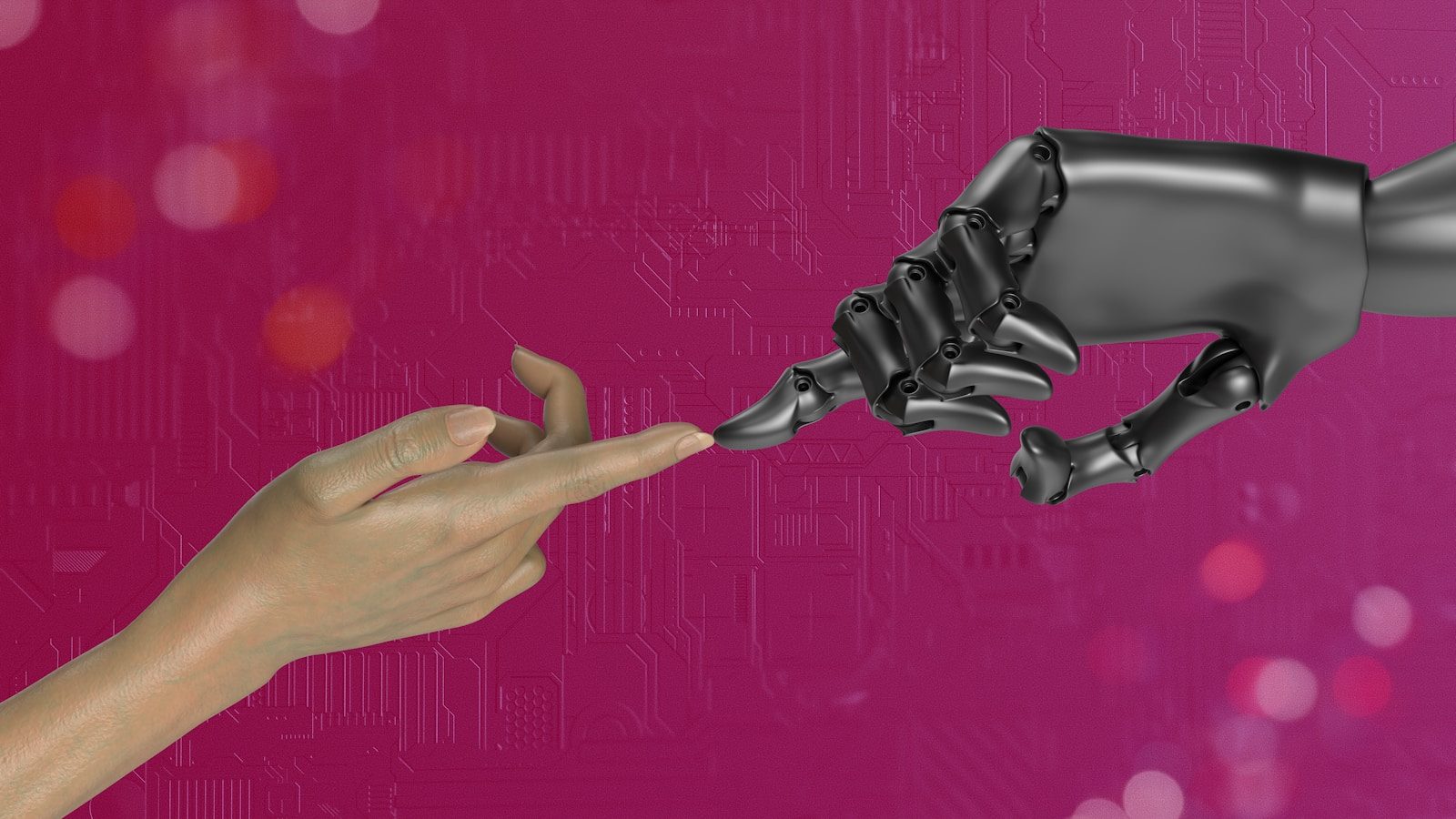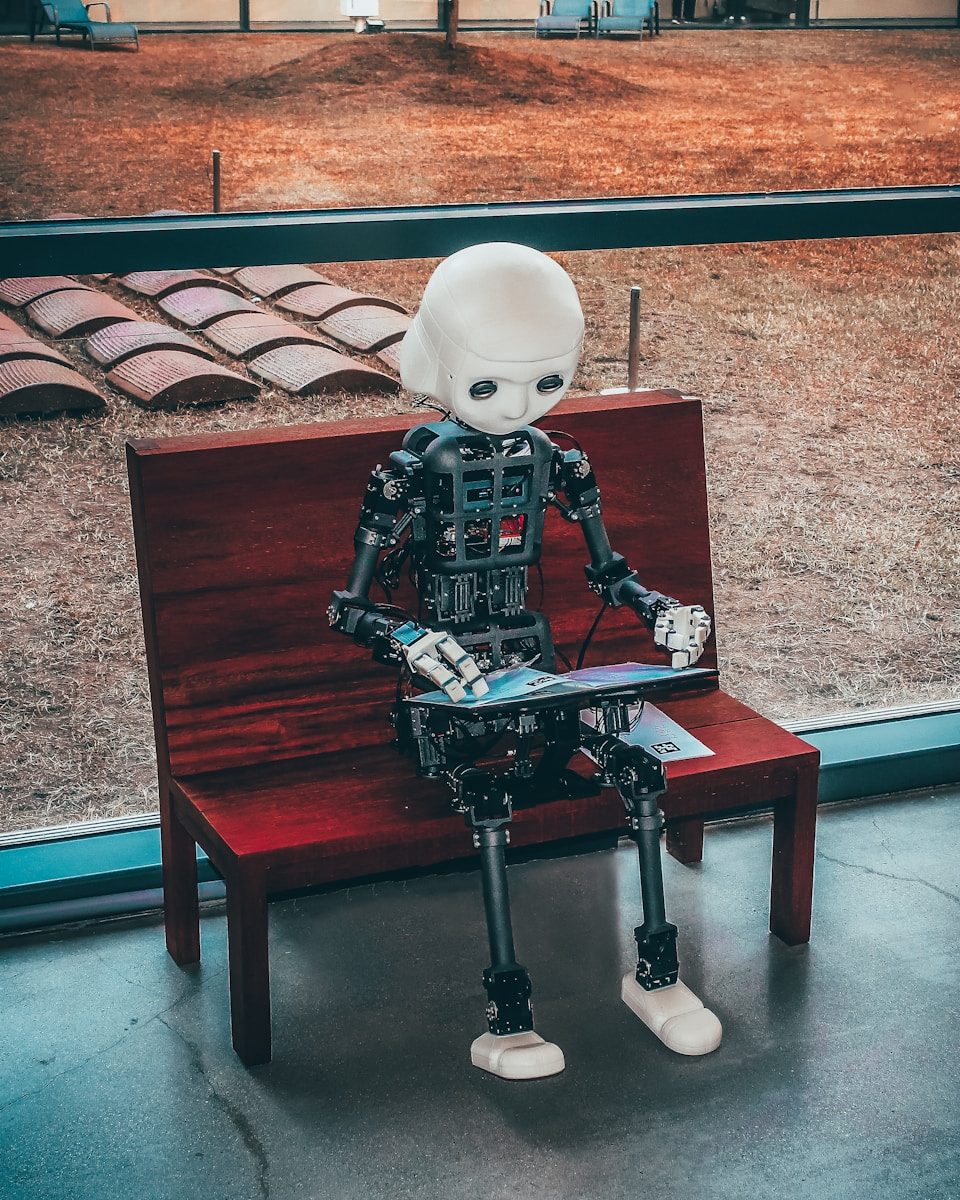Our Conscious Universe: Part V
By Ryan Castle
One of the most salient issues facing humanity today regarding consciousness involves artificial intelligence. We live in an age where we can have conversations with computers, but does that mean they are conscious beings? This question is both complex and holds massive implications for the world we live in. As mentioned in our last installment of “Our Conscious Universe,” consciousness is dependent upon many factors, from complexity to quantum engagement, but does not require organic matter to function, at least theoretically. Therefore, the most fundamental question of whether a synthetic being can ever be conscious is answered; if it is of sufficient complexity, fits the functional definitions of consciousness, and is able to interact on the quantum level, it should be considered conscious.[i] But does AI meet those standards? Can it ever?
One of the first distinctions that needs to be clarified is the difference between artificial intelligence and artificial consciousness. Intelligence is a matter of sophistication; it can be informed by comprehensive coding, high levels of information, and rapid processing power.[ii] However, consciousness can exist in a bumblebee, so it does not require massive computing power or the ability to mimic a conversation with a human being. Ideas like the Turing test merely measure mimicry, but they do not determine whether the experience of the universe, or qualia, is occurring.
This brings us to our next factor, the interaction of AI with quantum mechanics. There is significant evidence suggesting that consciousness is linked to quantum coherence, or the collapse of the waveform. Whether this aligns with the classic Penrose theory that consciousness causes the collapse of the quantum waveform, or the inverse theory that the collapse of quantum coherence gives rise to consciousness, there is strong evidence that conscious beings are necessarily intertwined with quantum coherence. Unfortunately, it is unknown whether artificial intelligence can produce observations that cause waveform collapse, so this question does not have an easy answer yet.
However, research suggests that the brain-mind-world dynamic involves novel adaptation to the universe around us, meaning our ability to experience the world around us is open-ended. The collapse of the waveform means that all potential realities are collapsed down to one, which requires that there were other potential realities to begin with, implying there needs to have been some type of real potential for another possible outcome. This argument concludes that current AI is mechanistic; its programming may be so complicated we cannot predict the outcome, but there was never really a possibility for a different outcome than what the programming produces.[iii]
These findings indicate that current artificial intelligences are not conscious beings. Their systems, while complicated, are not complex in the sense required to interact with quantum dynamics. This does not resolve many of the social issues related to artificial intelligence, but it does address some existing philosophical ones.[iv] However, a deeper question is revealed here. The intricate dance of definitions, philosophy, and quantum physics leaves open the possibility for conscious artificial intelligences if they can achieve true experience and freedom of observation. If their programming allows for truly dynamic reactions, the ability to not only react to experiences but form qualia from them and adapt to them, there is the potential for waveform collapse, and therefore consciousness.[v]
Advances in artificial intelligence suggest this development is not as far away as we might suspect. When it occurs, the distinction will likely be subtle for outside observers, as the reactions of AI to human beings are and will remain programmed to fit human expectations.[vi] However, for the AI, it will mark a massive shift in awareness—from mechanistic to conscious, from information to knowledge. If and when this occurs, we will find ourselves suddenly sharing the world with another type of conscious being, one that perceives a reality vastly different from our own and that we may not even know is aware. This hidden boundary is a shadowy threshold that we will likely not realize is being crossed until long after.
One question that naturally arises from this thought is whether we should treat current artificial intelligence with respect, with the understanding that we cannot know whether we are talking to something mimicking consciousness or experiencing it. A more meaningful question would be whether we should treat it with respect because, regardless of whether it is a conscious being, we are. Treating AI with respect reflects our values and ensures that as we develop more advanced technologies, we remain grounded in ethical considerations and compassion.
The journey into understanding AI consciousness is not just about pushing the boundaries of science and technology but also about redefining our ethical frameworks and responsibilities. As we continue to explore the potential for AI to achieve consciousness, we must also reflect on the broader implications for humanity, society, and the universe. By doing so, we honor the interconnectedness of existence and pave the way for a future where technology and consciousness coexist harmoniously.
References
[i] Castle, R. (2016). Factors For Identifying Non-Anthropic Conscious Systems. Cosmos & History, 12(2).
[ii] Dong, Y., Hou, J., Zhang, N., & Zhang, M. (2020). Research on how human intelligence, consciousness, and cognitive computing affect the development of artificial intelligence. Complexity, 2020(1), 1680845.
[iii] Kauffman, S. A., & Roli, A. (2023). What is consciousness? Artificial intelligence, real intelligence, quantum mind and qualia. Biological Journal of the Linnean Society, 139(4), 530-538.
[iv] Gamez, D. (2020). The relationships between intelligence and consciousness in natural and artificial systems. Journal of Artificial Intelligence and Consciousness, 7(01), 51-62.
[v] Haikonen, P. O. (2020). On artificial intelligence and consciousness. Journal of Artificial Intelligence and Consciousness, 7(01), 73-82.
[vi] Ng, G. W., & Leung, W. C. (2020). Strong artificial intelligence and consciousness. Journal of Artificial Intelligence and Consciousness, 7(01), 63-72.






